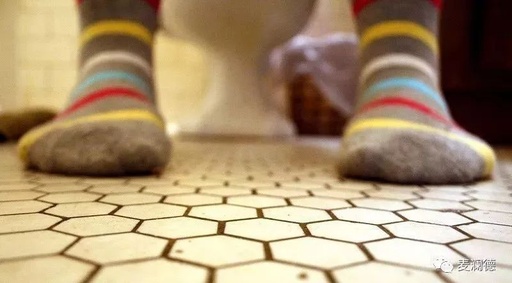
2017/10/31
TUESDAY
As autumn arrives, the weather becomes dry, leading to an increase in cases of 便秘 (bian mi) (constipation).
New mothers often remain bedridden for extended periods after childbirth, resulting in reduced physical activity and slowed intestinal peristalsis. Additionally, the abdominal wall expands during pregnancy and becomes lax postpartum, leading to difficulty in bowel movements. These factors can cause intestinal contents to stagnate, making it hard to expel.
Unfortunately, current research indicates that increased abdominal pressure associated with constipation is a high-risk factor for pelvic organ prolapse. Conversely, pelvic organ prolapse may also promote the occurrence and development of certain types of constipation. For instance, severe pelvic organ prolapse can directly cause obstructive constipation, and lifestyle changes and behavioral modifications associated with pelvic floor dysfunction may lead to or exacerbate existing constipation.
Therefore, preventing and improving constipation is particularly important for the prevention of pelvic organ prolapse. Here are 10 points to consider.
- Stay Hydrated
Ensure adequate daily water intake. A common recommendation is to drink eight glasses of water a day, but this can vary based on individual needs, body type, and activity level. A foolproof method is to make drinking water a part of your daily routine: drink water during meals, before leaving home, before returning home, while watching TV, etc.
- Increase Dietary Fiber Intake
Dietary fiber is a type of carbohydrate that cannot be digested by the human body, classified into soluble and insoluble fiber. The Chinese Nutrition Society defines it as: “Dietary fiber generally refers to polysaccharide food components that are not easily digested by digestive enzymes, primarily derived from plant cell walls, including cellulose, hemicellulose, resins, pectin, and lignin.”
Dietary fiber has a large volume, promotes intestinal peristalsis, and reduces the time food stays in the intestines. Additionally, fiber is fermented by bacteria in the colon, directly absorbing moisture from the fiber, softening stools, and facilitating bowel movements.
Fruits, vegetables, legumes, grains, nuts, and mushrooms are excellent sources of dietary fiber. Increasing fiber intake in daily life, such as adding grains to rice, using whole wheat flour instead of refined flour, and adding vegetables and mushrooms to soups, can significantly improve constipation.
- Avoid Overuse of Laxatives
Laxatives are convenient and act quickly for treating constipation. However, prolonged use can lead to increased dependence on laxatives, weakening the intestines’ natural peristaltic ability, and subsequently causing constipation. It is advisable to use laxatives intermittently and for short durations.
It is worth mentioning that many weight loss teas on the market contain active ingredients that are a type of medicinal laxative.
- Optimize Pain Medication Use
Some individuals report experiencing constipation symptoms from pain medications such as ibuprofen and acetaminophen. If there is a need for long-term pain medication, it is best to consult a doctor to optimize its use.
- Be Mindful of Iron, Calcium, and Antacid Intake
The likelihood of constipation increases after taking iron supplements, calcium supplements, and antacids. It is recommended to take vitamin C with iron supplements, magnesium with calcium supplements, and to drink plenty of water and increase dietary fiber intake while taking these supplements.
- Regular Exercise
Lack of exercise is a major contributing factor to constipation. In Chinese culture, it is often encouraged to rest during the postpartum period, which is not always beneficial. Prolonged bed rest and lack of movement slow intestinal peristalsis, leading to constipation. It is advisable to consult a doctor to choose safe and reasonable exercises based on individual pelvic floor recovery, and to maintain a daily routine. This can help alleviate constipation and even aid in weight loss.
- Address Underlying Health Issues
In some cases, the occurrence of constipation may not be direct but may indicate underlying health issues. Conditions such as hypothyroidism, inflammatory bowel disease, irritable bowel syndrome, diabetes, Parkinson’s disease, and multiple sclerosis may require addressing these health issues.
- Review Medication Use
Some medications can also cause constipation, such as the antihypertensive drug nifedipine, which commonly has constipation as a side effect due to its calcium antagonistic effect inhibiting intestinal movement. Additionally, certain antihistamines and antidepressants may also lead to constipation. It is best to create a list of medications and consult with a physician or pharmacist, who can suggest alternatives to alleviate or even prevent constipation.
- Manage Stress
Gastrointestinal motility and digestive fluid secretion are both regulated by the autonomic nervous system, which is in turn controlled by the brain’s central nervous system. In other words, mental activities can directly affect digestive function. Negative emotions such as tension, sadness, depression, and anger can weaken gastrointestinal motility and reduce digestive fluid secretion, leading to decreased appetite, bloating, and constipation.
Similarly, insufficient rest can inhibit gastrointestinal motility through its effects on the sympathetic nervous system, causing constipation.
Therefore, it is important to relax, alleviate stress, maintain a regular schedule, and lead a healthy lifestyle. Most importantly…
- Follow Medical Advice
If you are uncertain or unable to resolve the issue, it is best to consult a doctor. Physicians can provide advice from a holistic health perspective, which is safe, effective, and often low-cost.
References:
10 Tips for Managing Constipation, Hystersisters
Zhang Jun. (2013). Guidelines for the Diagnosis and Treatment of Chronic Constipation in China. 2013 China Constipation Summit Forum.
Liu Sifang, Liu Xiaohong, & Ke Meiyun. (2007). Preliminary Exploration of the Relationship Between Chronic Constipation and Female Pelvic Floor Dysfunction.
What to Do About Constipation? Zhihu, Answer from Dingxiang Doctor.
This article is from “Mai Lande Original”, feel free to share it with your friends.
Continue Reading:
Pelvic Floor Comic Science Popularization Vaginal Weights Pelvic Floor Courses
Rectus Abdominis Electrical Ultrasound Kegel Training Ovarian Maintenance
Postpartum Recovery Pubic Symphysis Separation Postpartum Rehabilitation
Understand in One Image Pelvic Floor Center Thin Endometrium
Visit the bottom of the public account for categorized science articles.
A light-hearted obstetrics and gynecology science subscription account.


